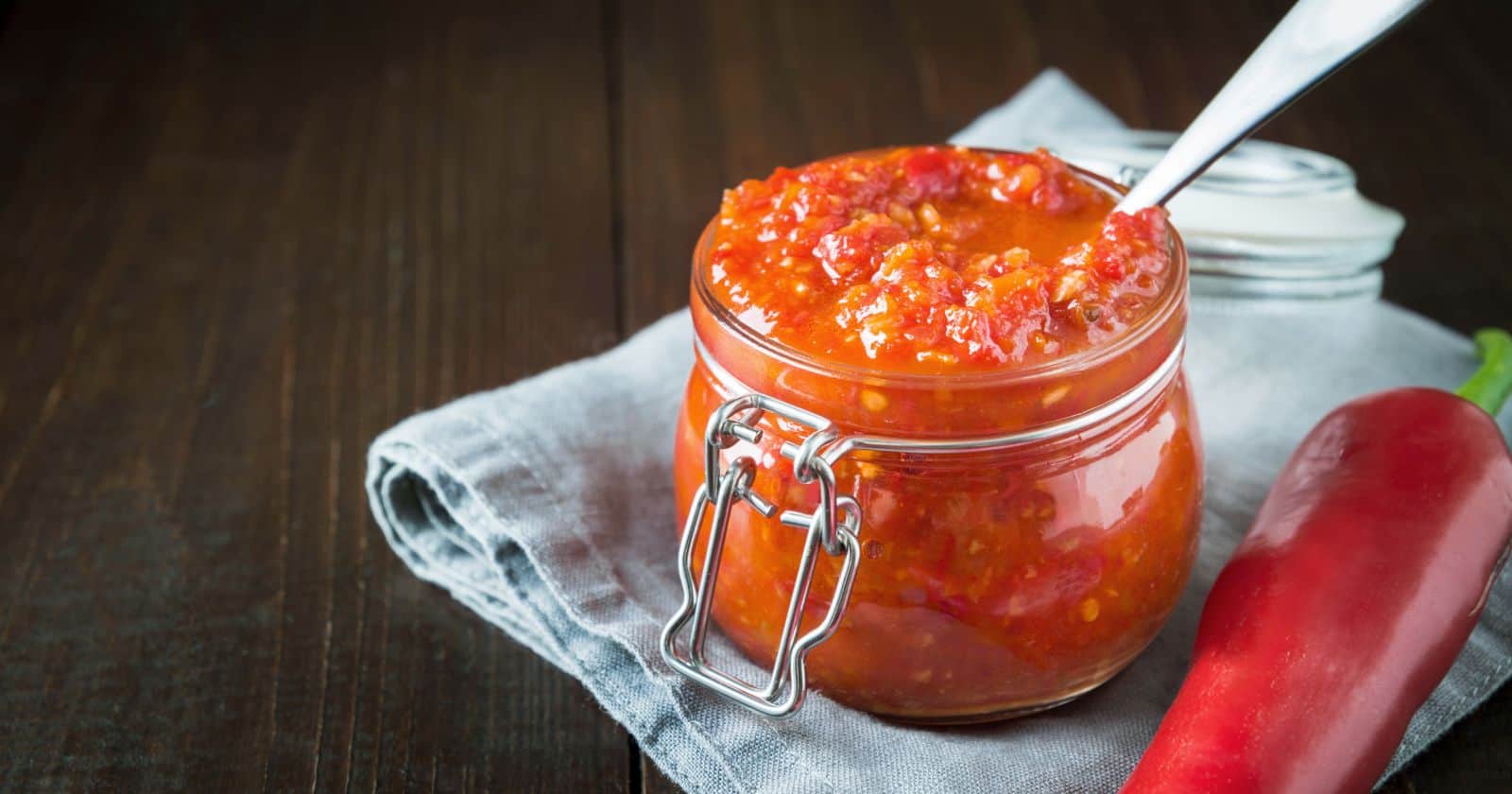As a dog owner and hot sauce fan, you may have wondered if giving your pooch a taste of your spicy condiment could negatively affect their behavior and personality. The thought of a normally docile dog turning aggressive after lapping up hot sauce is concerning.
The short answer is hot sauce does not actually make dogs mean or vicious. However, these spicy sauces can cause significant gastric distress and health issues in canines if consumed. In this article, we’ll break down how hot sauce affects dogs and why it should be kept far away from their food bowls.
You’ll learn what happens if a dog ingests hot sauce, from stomach problems to skin irritation. We’ll also provide healthier treat alternatives to share with your four-legged friend. While a few licks likely won’t harm your dog, hot sauce should never be fed intentionally.
So read on for the facts on hot sauce safety for dogs. We’ll explain why those spicy flavors are no treat for your pup. With this knowledge, you can confidently enjoy your buffalo wings without worrying about your dog throwing a fit!
Hot Sauce Can Irritate a Dog’s Digestive System
Dogs have much more sensitive digestive systems compared to humans. Their stomachs and intestines can easily get irritated by spicy foods like hot sauce. The peppers used in hot sauces contain a chemical called capsaicin which activates nerve endings and causes that intense, burning sensation.
When a dog eats hot sauce, the capsaicin can cause:
- Stomach upset
- Abdominal pain
- Loss of appetite
- Nausea
- Vomiting
- Diarrhea
These symptoms can range from mild to severe depending on the amount consumed and the individual dog. Small amounts may cause temporary discomfort, while large amounts can lead to ulceration of the stomach or intestines.
Hot Sauce Can Burn a Dog’s Mouth and Throat
In addition to the digestive system, a dog’s mouth and throat are very vulnerable to irritation from hot sauce and other spicy foods.
The delicate tissues in a dog’s mouth and throat can experience:
- Redness
- Swelling
- Burning sensation
- Pain when swallowing
This discomfort and pain in the mouth and throat could potentially make a dog act defensively. But the hot sauce itself does not inherently make the dog aggressive or mean.
Skin and Eye Contact with Hot Sauce Can Be Dangerous
If hot sauce directly contacts a dog’s skin or eyes, it can cause significant pain, inflammation, and possible injury. The capsaicin and other ingredients in hot sauce can be caustic to sensitive tissues.
Possible injuries from skin and eye exposure include:
- Rashes
- Burns
- Blistering
- Eye irritation, redness, ulceration
Dogs may become defensive when experiencing these effects, but again, the hot sauce is not directly causing aggression – just discomfort.
How Much Hot Sauce is Too Much for Dogs?
When it comes to hot sauce, the less a dog consumes, the better. Even small amounts could cause stomach upset. As a general rule of thumb:
- Avoid purposefully feeding dogs hot sauce. Start with dog-safe seasonings instead.
- Contact your vet immediately if your dog consumes more than a taste of hot sauce. Symptoms often appear within a few hours.
- Rinse skin or eyes with cool water if hot sauce exposure occurs. Seek veterinary care if irritation persists.
Accidental ingestion of hot sauce can and does happen, so being prepared and vigilant is key to protecting your dog’s health and wellbeing.
Dog-Safe Ways to Add Flavor
While hot sauce and other spicy condiments are not recommended for dogs, there are many safe ways to add flavor to your dog’s diet. Consider these healthy, pet-friendly options:
- Plain yogurt or cottage cheese
- Mashed fruits and vegetables like banana, sweet potato, or pumpkin
- Unsalted butter or oil
- Dog-safe seasonings like garlic powder, basil, dill, or turmeric
- Small amounts of bone broth or low-sodium chicken/beef stock
- Peanut butter (in moderation)
- Plain cooked grains like rice, barley, or oatmeal
Get creative with combinations of these wholesome foods to keep your dog’s meals interesting and delicious – no hot sauce required!
What to Do if Your Dog Ingests Hot Sauce
Accidents happen, and your dog may manage to scarf down food with hot sauce before you realize it. Here are some steps to take if this occurs:
- Remain calm – stress and anxiety can worsen your dog’s reaction.
- Check for symptoms like excessive drooling, vomiting, or pain.
- Contact animal poison control or your veterinarian right away.
- Bring a sample of the hot sauce if possible, to identify ingredients.
- Follow first aid guidance which may include giving fluids or medication.
- Monitor closely for the next 24 hours for delayed symptoms.
With prompt, proper care guided by your vet, most dogs recover fully from hot sauce ingestion. Still, prevention is the best policy when it comes to protecting your pooch.
FAQs about Hot Sauce and Dogs
Q: How much hot sauce is toxic to dogs?
A: Even small amounts of hot sauce can cause irritation in dogs. Just a teaspoon could result in stomach upset. Consuming more than a tablespoon of hot sauce may require veterinary treatment. Hot sauce toxicity depends on the size of the dog, amount ingested, and the hot sauce’s specific ingredients and
Q: What ingredients in hot sauce are dangerous for dogs?
A: Capsaicin is the main ingredient of concern, as it gives hot sauce its heat and can cause gastrointestinal issues, throat/mouth irritation, and skin irritation in dogs. Other potentially problematic ingredients include vinegar, garlic, and onion powder. Check the specific hot sauce label.
Q: What should I do if my dog licks hot sauce from my plate?
A: Don’t panic, but monitor your dog closely. Look for signs of drooling, lip smacking, vomiting, or pain. Give your dog a small amount of milk or broth to help dilute the capsaicin. Call your vet if symptoms concern you or persist more than a few hours.
Q: Can hot sauce cause neurological issues in dogs if ingested?
A: It’s very unlikely. Capsaicin primarily affects the gastrointestinal tract if ingested. Even large amounts are not known to cross the blood-brain barrier. Irritation of the nervous system is usually temporary. If neurological symptoms occur, seek veterinary care immediately.
Q: Is it okay to add just a tiny bit of hot sauce to my dog’s food?
A: No, it’s best to avoid this. Even a small amount of hot sauce can irritate your dog’s sensitive digestive tract. There are many dog-safe spices to use instead to give their meals more flavor. Check with your vet first before adding anything new to your dog’s diet.
The Takeaway: Enjoy Hot Sauce Safely
Spicy hot sauce tastes great on your own plate, but has no place in your dog’s diet. Consuming hot sauce can cause significant health issues for dogs, but it does not inherently make them mean or aggressive. With some caution and common sense, you can keep your hot sauce cravings without endangering your four-legged best friend. Stick to dog-safe seasonings so you and your pooch can both enjoy mealtime.





